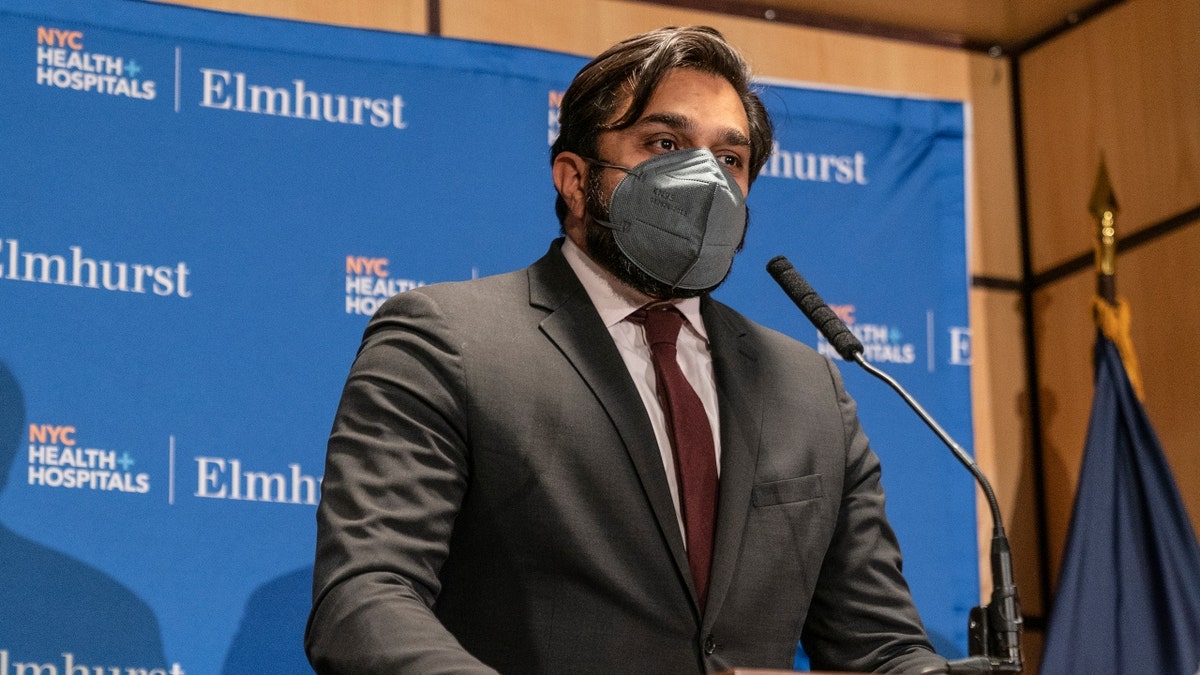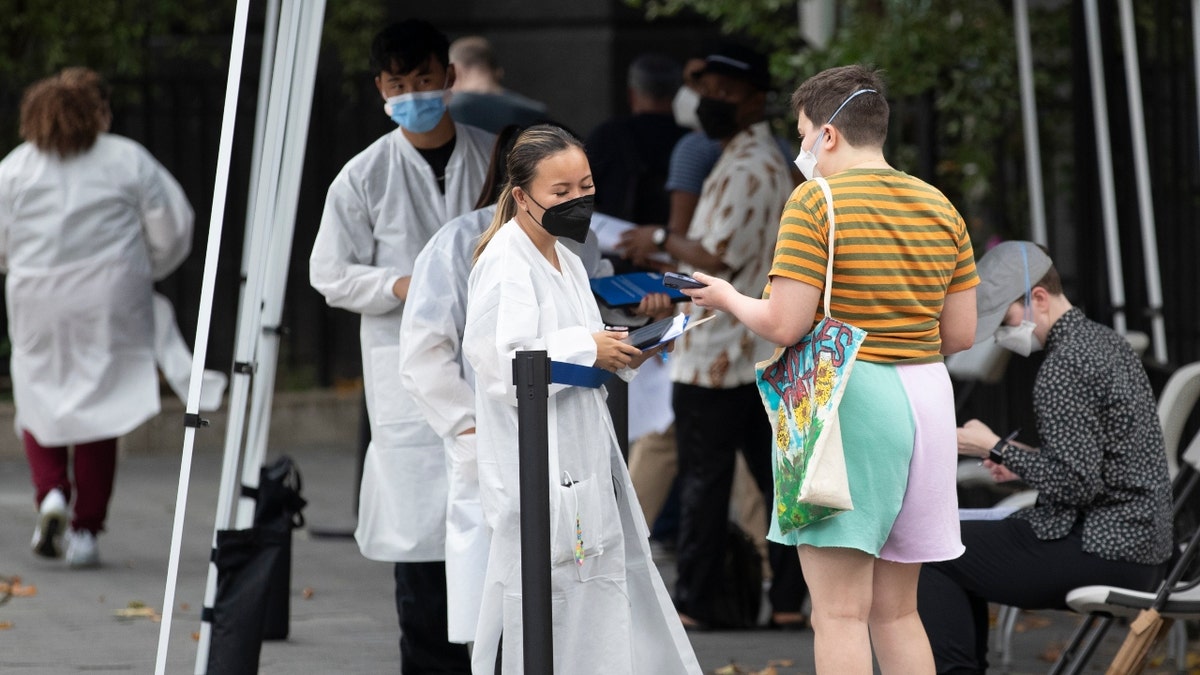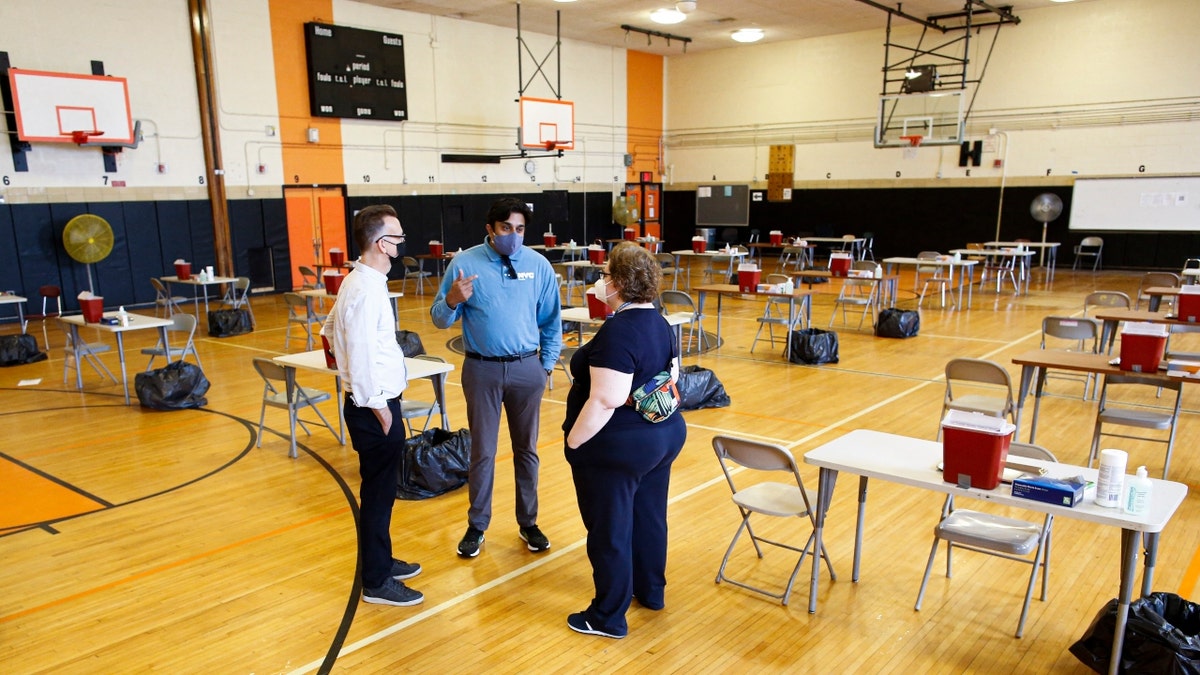Fox News Flash top headlines for July 27
Fox News Flash top headlines are here. Check out what's clicking on Foxnews.com.
New York City's health department is calling on the World Health Organization (WHO) to immediately rename the monkeypox virus.
In a letter to WHO Director-General Dr. Tedros Adhanom Gehebreyesus, Department of Health and Mental Hygiene Commissioner Dr. Ashwin Vasan wrote that while the Big Apple remains concerned about rapidly increasing transmission and limited access to testing resources and vaccine supply, it has a "growing concern" for stigmatizing and "potentially devastating" impacts the messaging around monkeypox can have on vulnerable communities.
"Therefore, I write to urge you to act immediately on renaming the ‘monkeypox’ virus as the WHO stated they would do during a June 14th press briefing, over [five] weeks ago. NYC joins many public health experts and community leaders who have expressed their serious concern about continuing to exclusively use the term ‘monkeypox’ given the stigma it may engender, and the painful and racist history within which terminology like this is rooted for communities of color," he said.
Tedros and the WHO declared last week that the international outbreak constitutes a Public Health Emergency of International Concern.
MONKEYPOX: WHAT YOU MUST KNOW ABOUT THE VIRUS — AND HOW TO PROTECT YOURSELF
"Stigma and discrimination can be as dangerous as any virus," he told reporters.
Messaging surrounding monkeypox has divided officials, and Tedros announced in June that the United Nations health agency is working with experts to change the name.

New York City Department of Health and Mental Hygiene Commissioner Ashwin Vasan speaks during media availability at Elmhurst hospital. (Lev Radin/Pacific Press/LightRocket via Getty Images)
People normally become infected with the monkeypox virus through contact with the skin lesions or bodily fluids of infected animals or humans or through contact with materials contaminated with the virus.
Although most cases have been seen in gay or bisexual men, experts caution that anyone is at potential risk.
A group of scientists wrote on a forum earlier in June that continued reference and nomenclature of the virus being African "is not only inaccurate but is also discriminatory and stigmatizing."
The virus has now spread to over 75 countries, according to data from the Centers for Disease Control and Prevention (CDC), the majority of which have not historically reported monkeypox.
Per the WHO, monkeypox is endemic to countries in western and central Africa.

People wait to receive the monkeypox vaccine at a mass vaccination site in Manhattan on July 26, 2022, in New York City. (Liao Pan/China News Service via Getty Images)
WHO DECLARES MONKEYPOX A GLOBAL HEALTH EMERGENCY
"'Monkeypox' is a misnomer, as the virus does not originate in monkeys and was only classified as such due to an infection seen in research primates," Vasan added.
Vasan said continuing to use the term "monkeypox" could reignite traumatic feelings of racism and stigma, particularly for the Black communities, other communities of color and members of the LGBTQIA+ communities.

Commissioner Ashwin Vasan speaks to health care workers before the opening of a monkeypox mass vaccination site at the Bushwick Education Campus in Brooklyn on July 17, 2022. (Kena Betancur/AFP via Getty Images)
Vasan also noted that hate crimes against Asian and Pacific Islander (AAPI) individuals have exponentially increased during the COVID-19 pandemic, warning that additional consequences for gay, bisexual and other men who have sex with men could be brought about due to stigma.
CLICK HERE TO GET THE FOX NEWS APP
"Words can save lives or put them at further risk; thus, the world cannot repeat these mistakes in nomenclature again," he said. "We are at a critical crossroads of the ‘monkeypox' outbreak – before understanding and awareness of the virus is spread more widely, but also at a time of increasing transmission where we need to be broadly messaging about primary prevention and risk. The WHO must act in this moment before it is too late. "
According to city data, as of Tuesday, 1,092 people tested for orthopoxvirus and monkeypox, but there are likely many more cases that have not been diagnosed.









































